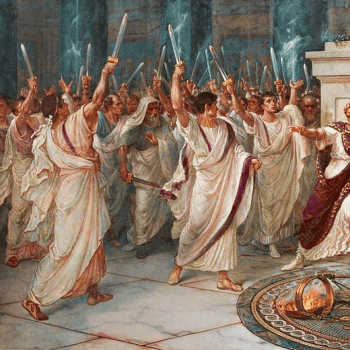Rev. Adam Roe, in his series on vocation at Mission: Work, observes that Philip Melanchthon, author of the Augsburg Confession and other key texts in the Book of Concord, was a layman. Pastor Roe uses this fact as an example of “the priesthood of all believers,” going on to show how the doctrine of vocation shows how God is graciously active and present in all of life.
Now Rev. Roe is a pastor in the Lutheran Congregations in Mission for Christ (LCMC). I’m in the Lutheran Church Missouri Synod (LCMS). There are, indeed, different strains of Lutheranism. I get the feeling that we Missouri Synod Lutherans have a higher view of the pastoral office than the LCMC. Rev. Roe emphasizes God’s real presence in lay vocations, such as farming and parenthood, but he seems to have more of a functionalist view of the pastoral office. My impression is that neither kind of calling is just a function, but that both are genuine channels for God’s workings, though in different ways. Then again, I’m aware that within the LCMS are some differences in the theology of the pastoral office. Then again, I, like Melanchthon, am a humble layman, but unlike Melanchthon, I’m not up on all of the theological nuances. Read what Rev. Roe has to say, excerpted and linked after the jump, and help me out here.
From Rev. Adam Roe, God is abundantly everywhere: #3 in a series, at Mission:Work:
One cannot help but note that the famous Lutheran Augsburg Confession, and its subsequent defense, were written by a layperson. Philip Melanchthon, both loved and held at arm’s length in Lutheran circles, never preached a day in his life, but his role in early Lutheranism was invaluable. For Luther, the problem of the Reformation was not that the Roman Church taught that priests receive a distinctive call within the Body of Christ. Most certainly for Lutherans, the call to the pastorate or priesthood is a distinct function within the church. The Lutheran Confessions state as much when we read, “That we may obtain this faith, the Ministry of Teaching the Gospel and administering the Sacraments was instituted. For through the Word and Sacraments, as through instruments, the Holy Ghost is given, who works faith…”
People within the Body of Christ are graced with differing gifts and talents (1 Corinthians 12). One of the gifts that God gives to people is the ability to lead worship, and he also gives the gift of ordering church life. Lutherans understand that not all people are called to Word and Sacrament ministry, but that does not mean that others within the Body of Christ are of a lesser estate! Indeed, it can be argued that Melanchthon’s theological contributions were greater than that of most of the Lutheran pastors/priests of his time. His role was not more important than that of the parish pastor, but his role was most certainly as important. Luther’s willingness to allow a layperson that sort of authority speaks volumes about the ethos of the Lutheran Reformation. Melanchthon was not trained in a monastery. His early education was received in secular institutions (not unlike Luther), and he became interested in Biblical theology after accepting a Greek teaching position at the University of Wittenberg. There he met Luther, and the rest is history. . . .
The Lutherans view medieval classifications of vocation as failing to see God as abundantly gracious in all of life. God not only blesses us through Word and Sacrament, but also through healers, bakers, bankers, and farmers, just to name a few. One can see how this perspective flips not only the church’s understanding of the priesthood of all believers, but also the view of God’s work in the world around us. The Lutheran vocational view is one in which God is already making Himself abundantly available to us! All we need is to see how God is both blessing us, and using us, in the vocations to which we have been called. In this way, there is spiritual importance in the housewife who feeds her children, because God has ordained the vocation of parent. The question is not whether God ordains us all equally to a ministry, but whether we see God at work in the ministries/vocations to which we have been called.
















